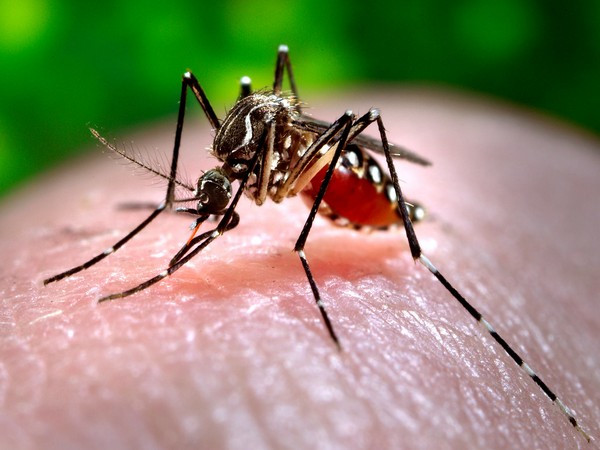
Parvathipuram Manyam(Andhra Pradesh) [India], July 19 (ANI): Public hospitals in Andhra Pradesh'sParvathipuram Manyamdistricts are finding it difficult to manage a rise in viral fevers, as packed hospital wards and insufficient facilities present significant obstacles for medical staff.
Due to the increasing number of patients, numerous government hospitals are functioning at overcapacity. In some institutions, it is reported that two or three patients are being treated in one bed, causing worries regarding cleanliness and the standard of medical care.
Since the whole district is classified as a tribal agency zone, it has also seen an increase inmalaria cases, especially among students residing in tribal ashram school hostels. Health authorities have verified that multiple children who were admitted with high fever have tested positive for malaria.
Despite the Salur Area Government Hospital being upgraded to a 100-bed facility, the new structure is still in the process of being built. Consequently, the hospital is experiencing a lack of beds and inadequate facilities, leading to significant difficulties for patients.
As per hospital officials, Salur Hospital is currently managing more than 300 outpatient cases and has approximately 130 patients admitted. With the monsoon season becoming more severe, the count of fever cases is anticipated to increase further. Although medications and essential services are accessible, the shortage of sufficient bed capacity continues to be a problem.
Dr. Gopal Rao, head Medical Superintendent of theSalur Area Hospital, stated, "The 100-bed facility is still being built, and upon completion, it will greatly enhance the quality of healthcare services."
He called on officials to speed up the construction in order to offer improved care to the community. Rao also highlighted the difficulties encountered by the local healthcare system, such as fever, diarrhea, and animal bites.
He stated, "We have currently recorded infection cases up to the 30th of this month. Out of these, there are between 20 and 30 cases involving fever. Diarrhoea cases are also being reported due to insufficient access to clean drinking water — not only within the hospital but also in the nearby villages."
He also mentioned that there has been a minor drop in fever cases during the last few days, yet the chance of another increase still exists, particularly as infections keep spreading among the population.
In the last 20 days, there were many instances of fever, though there has been a small drop lately. Nevertheless, there remains a chance of an increase in cases because of infections spreading among the population. In the same way, cases of diarrhea keep occurring often.
In addition, the hospital is handling multiple cases of injuries caused by animals, mainly snake bites and dog bites.
"We are also dealing with cases of snake bites and dog bites. Dog bites are quite frequent in our region, and we have Anti-Rabies Vaccine (ARV) and Anti-Snake Venom (ASV) available and easy to access for these situations. At present, we are conducting our presentation and operations from an old hospital building, where the bathroom facilities are insufficient and create difficulties," Rao added.
He mentioned that activities are taking place in the old hospital structure, where insufficient hygiene facilities are worsening the difficulties.
"Meanwhile, a new hospital building is being constructed in the vicinity. If we can relocate and function from the new facility once it is finished, we might be able to greatly enhance maintenance and service quality," he stated. (ANI)

Posting Komentar